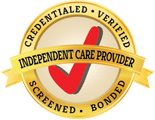
On their own, these medications can be extremely beneficial, perhaps even life saving; each one is necessary for maintaining quality of life. However, taking many prescription medications coupled with all of the supplements and over-the-counter drugs is a condition known as polypharmacy, and can increase the risk of dangerous drug interactions. In fact, the American Geriatrics Society finds that every year, one in three people aged 65 and over has one or more harmful reactions to a medication.
One of the reasons for this high statistic is that the aging process causes changes to the body which can affect the way medication absorbs and reacts. Decreased kidney and liver function are a product of aging, and could affect how fast medications are processed in the body, and a slower GI tract can affect how much of the medication actually enters the bloodstream.
Another reason is the sheer difficultly of keeping track of medications and taking them directly as prescribed. With 44% of men and 57% of women older than age 65 taking five or more medications per week, it is no wonder that mistakes with medications occur frequently. Elderly prescription drug use also becomes problematic when patients are prescribed too many medications by multiple healthcare providers working independently, and no one doctor knows the patient's full history.
So what can you do to lower the risk of potential problems related to multiple drug use? There are several strategies to help get a handle on your medication habits to make sure that you are getting the proper amount that was intended for you.
1. Always ask the doctor questions
When you are diagnosed with an illness and have to be put on to a new medication, be sure to ask the doctor everything that is relevant to you so that you are prepared and know exactly how and when you should be taking the medication. Also be sure he or she knows what other medications you are taking so they could notice any possible interactions.
2. Educate yourself
While doctors and pharmacists will be able to advise you about prescription interactions and dosing, they will likely not be aware of all of the over-the-counter medications and herbal supplements and vitamins that you take also. And just because these medications are not prescription strength does not mean that they do not have the potential to interact with other medications. In fact it is quite the opposite - OTC products, such as vitamins, minerals, antacids, sleep aids and laxatives can all interfere with the effectiveness of other medications, so be sure to read up on possible interactions and let your doctor or pharmacist know if you have any questions.
Also, be sure that you are aware of the side effects of prescription medications so that you know what to expect and don't get caught in a dangerous situation. Many medications have side effects such as dizziness and drowsiness which can interfere with driving and increase the chances of accidents or falling if the warnings are not heeded.
3. Listen to your Doctor
Medications are meant to be taken exactly as prescribed, so do everything you can to take the medication as you had discussed with your doctor. This means taking it at the proper time of day, with or without food and taking the correct dosages. If any unexpected side effects occur, immediately call your doctor to discuss the best course of action, but never suddenly quit taking a medication without first discussing it with your healthcare provider.
4. Keep a Comprehensive List of Medications
You should create a comprehensive list that serves as the reference any time you go to the doctor or pharmacy. Be sure to add any over-the-counter medications and herbal supplements as well as prescriptions. The list should include the prescribed dose, how many times a day you take the medication, who prescribed it and what it was prescribed for. Keeping a list is a good way to make sure you never forget any medications when you meet with new doctors or go back for new appointments. Be sure to keep the list updated and on you at all times because being able to determine your medications could save your life in an emergency situation.
5. Get Help to Remember
With all the different medications, times and doses, it is hard to remember and easy to make mistakes. The best way to avoid this is to get help in some way. Try syncing your pill schedule with meals so you remember, or get a pill box and/or pill calendar to help keep track. There are even high tech options now with programmable prescription caps that sound an alarm, and a device called the CompuMed Dispenser that dispenses the proper amount of medication at the right time and gives you the instructions as you take it.
But if it gets to the point where this is not enough, care providers can be wonderful helpers when it comes to medication, because they can help administer the exact right medication and dosages throughout the day, and are there if there is ever any problem with negative drug interactions or reactions.
At American In-Home Care, we always refer qualified, screened, care providers that can assist you with your in-home care needs, including medication management and reminders. Contact a Client Care Liaison at any time to set up a free assessment of your in-home care needs; they can provide you with additional information about which care options are right for you and your family. We are available to take calls 24/7 at 1-844-505-0004.

